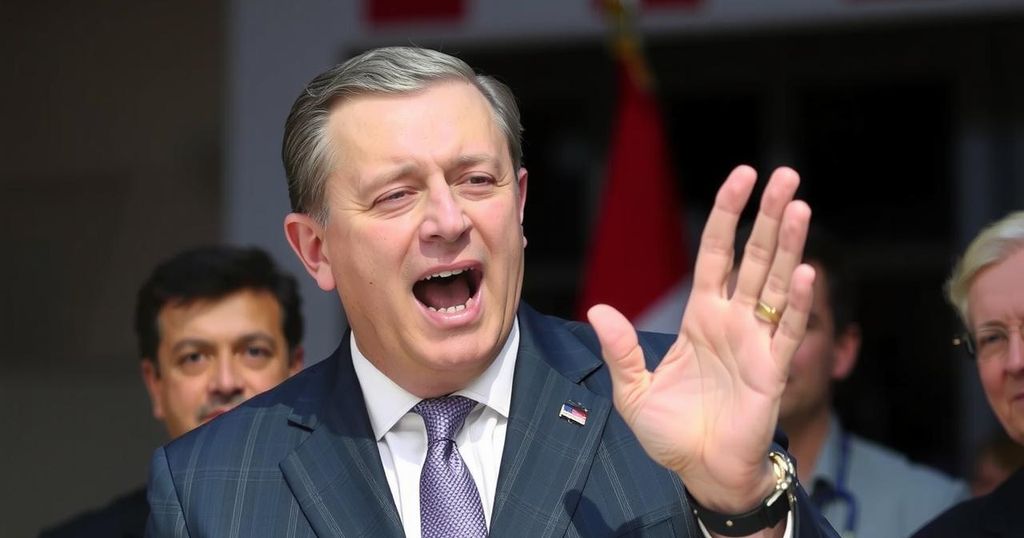Zoran Milanović Wins Reelection as Croatian President Amid Political Tensions

Croatia’s President Zoran Milanović has won reelection decisively, garnering nearly 74% of the vote against ruling party candidate Dragan Primorac. This victory underscores Milanović’s critical stance toward the EU and NATO, particularly concerning military support for Ukraine. It also promises to escalate tensions with Prime Minister Andrej Plenković, as Milanović aims to address issues of inflation and systemic corruption within the country.
In a runoff election held on Sunday, Croatian President Zoran Milanović, backed by the opposition, decisively defeated ruling party candidate Dragan Primorac, winning approximately 74 percent of the vote. This victory secures Milanović a second five-year term and emphasizes his stance as a vocal critic of Western military interventions, particularly regarding the situation in Ukraine. Despite the largely ceremonial nature of the presidency in Croatia, Milanović’s reelection is expected to intensify his confrontations with Prime Minister Andrej Plenković, highlighting the ongoing political tensions within the country.
Milanović’s relationship with the EU is contentious, as he has labeled its leadership as “non-democratic” and criticized its treatment of dissenting opinions. His critiques extend to issues of inflation and corruption within Croatia, as he alleges systemic corruption tied to the ruling Croatian Democratic Union. His past as Prime Minister, characterized by mixed outcomes, adds layers to his current political identity, often described as combative, resembling that of former U.S. President Donald Trump.
Although the presidency carries limited power, Milanović’s influence as the constitutional commander-in-chief of the armed forces positions him as a critical player in Croatia’s political landscape, particularly against the dominant HDZ party. Primorac, his opponent, previously served in the HDZ-led government and has had an established career in academia. This election result not only reflects public sentiment towards Milanović’s policies but also foreshadows continuing political division in the nation.
The political climate in Croatia has been characterized by a struggle between divergent opinions on NATO, EU policies, and internal governance. Zoran Milanović’s reelection is significant as it indicates a shift in public support towards a more critical stance against the European Union and NATO’s overpowering influence. This election has also capitalized on social issues like inflation, corruption, and the socio-economic challenges facing Croatia, especially as a young EU and NATO member. The complex nature of Croatia’s political dynamics, stemming from a history of governance by the Croatian Democratic Union (HDZ), adds intrigue to Milanović’s presidency, which has already seen conflict with Prime Minister Andrej Plenković. Understanding these factors is essential in navigating the expected push and pull between Milanović’s administration and the ruling party, as well as grasping the implications this has for Croatia’s position within the European Union and international alliances.
In conclusion, Zoran Milanović’s overwhelming reelection positions him as a critical figure in Croatian politics, poised to challenge the ruling government’s narratives and policies. His strong stance against NATO and the EU’s current dynamics suggests potential shifts in Croatia’s domestic and foreign policies. This electoral victory may lead to intensified political rivalry and scrutiny of governmental practices, likely shaping the country’s trajectory in the years to come. The results reflect a populace seeking alternative perspectives on pressing national issues.
Original Source: www.pbs.org








